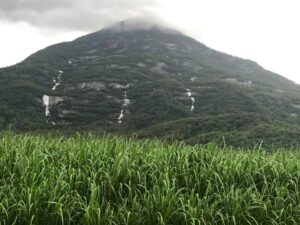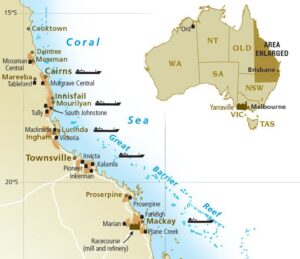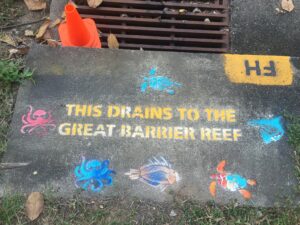
The climate change discussion has long focused on the disastrous consequences of rising temperatures: melting ice caps leading to starving polar bears, or increased droughts leading to widespread crop failures. One of the most devastating takeaways of the latest International Panel on Climate Change (IPCC) Report is that coral reefs will be completely lost if global temperature increases hit the 2C mark.
Climate change is certainly no small threat to diverse ecosystems like the Great Barrier Reef; however, we can get too consumed by the enormity of the issues associated with it to investigate individual solutions.
So, what we do when we think about climate change?
The despair that accompanies the knowledge of ecosystem loss attributed to global climate change can have counterproductive effects on our effort to reduce our own carbon footprints and educate others on how to follow suit. Renee Lertzman, an environmental psychologist, suggests that “environmental melancholia” can cause people to obsess over specific behavioral changes – such as committing to plant-based diets or recycling – to the point where they become frustrated with those who don’t adopt the same values at the same speed.
I applaud those who live mindfully every day: those reducing their carbon footprint by decreasing their meat consumption, cutting back plastic use, and traveling via public transportation – or better yet, via bicycle. However, climate consciousness is not easy to quickly adopt, and the urgency for it can cause some to be overcome with grief. Worst-case scenario, they choose climate denial.
After all, the fate of the Great Barrier Reef is a heavy burden to bear.
Do not mistake this for an attempt at sugarcoating
If I may be so bold, I’d like to offer an alternative approach to maintaining climate change consciousness. This recipe for change calls for us to take a closer look at local environmental issues before we tackle saving the entire planet.
Take the deterioration of the Great Barrier Reef, for example.

While global climate change is the leading threat to the health of the GBR, other localized issues are also at play. Many people are familiar with the GBR as one of the largest living structures in the world. What some might not know is that it’s in proximity to the majority of Queensland, Australia’s sugarcane farming areas.
Australia is the second largest raw sugar export in the world, and 95% of that production occurs in Northern Queensland. Sugar that isn’t exported serves as the key raw material distilled into Bundaberg Rum, widely known as the famous Aussie spirit.
According to a recent study, sugarcane fertilizer loss contributes to 56% of the dissolved inorganic nitrogen In the Great Barrier Reef World Heritage Area. The nutrient loading from the run-off leads to poor water quality and outbreaks of Crown of Thorns starfish.
Crown of Thorn Starfish (COTS) once contributed to the health of the reef by feeding on overgrowing coral. However, climate change has made it difficult for corals to reproduce, and the abundance of COTS gnawing away at the limited living coral is contributing to the struggle.
COTS are abundant in the GBR because nutrients in fertilizers feed phytoplankton. The starfish larvae have higher rates of survival with the surplus of fertilizer-fed plankton and a lack of predators from overfishing. More food for larvae means more COTS make it to adulthood, feed on coral, and reproduce. Ultimately, the starfish consume coral faster than they can regrow.
This information might be startling – we tend to overlook the negative side effects of agriculture because it serves a critical role in our livelihoods. Plus, does anyone want to tell an Australian to reduce their rum intake? Definitely not. It’s hard to find a balance between profitable farming and thriving ecosystems, but is it necessary to sacrifice one in order to save the other?
Luckily, a balance can be met through communication, community support, and conservation.
All hope is not lost
Water quality improvement is not the be all and end all to the obstacles the GBR will encounter, but improving the quality of the water entering the reef will benefit its overall health. Further, efforts to reduce nutrient loading will contribute to the reef’s long-term resilience to climate change and other disturbances.
Recognizing this, local organizations are working closely with farmers to:
- Adopt best management practices
- Lobby for government incentives for sustainable agriculture
- Educate community members on links between land management and water quality
- Continually monitor water quality at various catchments
- Support efforts to conserve buffer zones (wetlands and forested areas)
Here’s my point.
It’s easier to focus on a localized approach to issues associated with climate change than to take on the weight of the global issues. For example, citizens of Northern Queensland can work directly with their local farmers, government, and community to incentivize and implement management strategies that reduce nitrogen run-off into the GBR.

Educating one another about issues that can be approached at the local level can have a lasting impact and requires as little as an informed conversation.
I’m not saying, “Don’t worry about the Great Barrier Reef, that’s not your problem.” I’m saying start small: learn about the practices of your local farmers, talk to a friend about environmental issues within your own community, participate in citizen science, show up to community meetings and listen.
Most importantly, be mindful, but go easy on yourself. Get involved – definitely vote – but remember, the Great Barrier Reef wasn’t built in a day.
